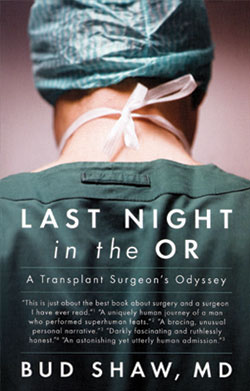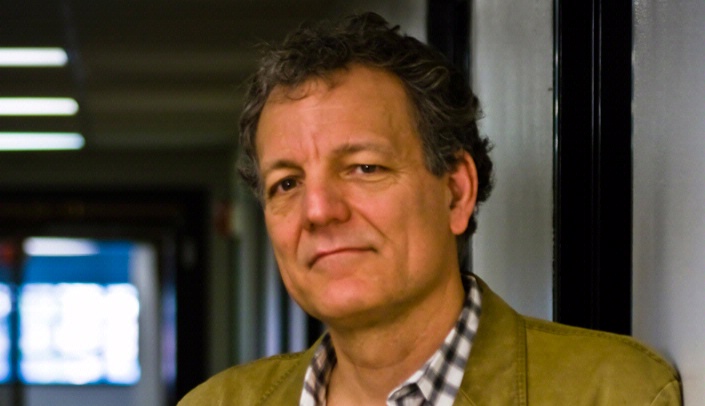Bud Shaw, M.D., has saved a lot of lives in the course of his career.
But you won’t find many stories of these “saves” in “Last Night in the OR,” Dr. Shaw’s critically acclaimed memoir. Dr. Shaw will be reading selections from the book this week at the McGoogan Library.

Reading and book signing
Dr. Shaw will read from “Last Night in the OR” from 4-5:30 p.m. Thursday on the eighth floor of the McGoogan Library. A book signing will follow, and light refreshments will be served.
“I struggled to try to come up with some successes to write about and to do it where I’m not like ‘Look at what I was able to do,'” he said. “My editor kept asking, ‘Don’t you have any happier stories?’ So I’d write one and think it’s pretty happy and funny, and he’d have to point out that once again, the patient dies.”
Death — fearing it, battling it and ultimately coping with it — looms large in “OR,” and not only in the operating room, where Dr. Shaw, under the aegis of his demanding and occasionally profane mentor Tom Starzl, M.D., becomes one of the top liver transplant surgeons in the country. The memoir ranges from Dr. Shaw’s boyhood, when his mother was stricken with cancer, to the death of his aged father, a surgeon himself, many years later.
“I found myself dealing with these experiences that were always sort of lurking there in the back of my mind,” Dr. Shaw said. “It’s funny because as I worked on these things, somehow the memories of all the heroic saves have pretty much faded — with the exception of the few that ended up in the book.”
Dr. Shaw has been writing nonfiction since 2010 and was one of the first participants in UNMC’s Seven Doctors Project, a UNMC-based writing group. Initially, he wrote fiction, so turning to nonfiction was a challenge.
“I couldn’t really start writing about it until I had enough distance and I had the right perspective,” he said.
The result is a deeply personal book that deals less with Dr. Shaw’s many accomplishments — including starting UNMC’s liver transplant program and serving for 12 years as chair of the department of surgery — and more about his fears, frustrations and certainly issues of family.
“I think this was very specifically only about certain aspects of the job and my life, and the relationship between them,” he said. “And sort of an exploration of why the heck I even went into transplants.”
